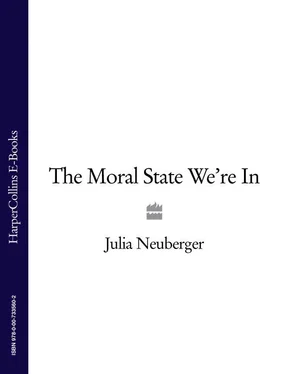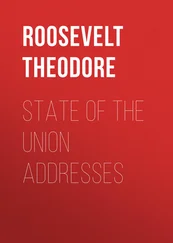Our fears are not wholly unfounded. We have, in recent years, lived through the Soham murders and through a series of scandals surrounding children’s homes and special schools. In the USA, one smart California nursery was thought to be the centre of a wave of bizarre sexual and other attacks on small children. The Roman Catholic Church is still reeling from revelations about the number of attacks on young children by priests and from stories of violence and abuse by priests and nuns in Catholic-run children’s homes, about which senior church members knew and did nothing–or, worse, simply moved the offending priests or nuns on and did nothing to protect the children or heal their wounds. Yet, for all that, such a level of protection of children will lead to them being unable to trust anyone. Anyone accused of an attack on children is likely to go underground. The situation may well arise in which those who want to help children whose own families may be the worst abusers, or children whom circumstances have let down in a big way through parental death or family breakdown, are deterred by the bureaucracy through which they have to go. It is as if we are trying to create a risk-free society, which we know in our heads and our hearts is impossible. The result is that we restrict and regulate, hoping to make terrible things impossible whilst knowing we cannot, and, in the process, deterring the willing and the kind.
Then there is the unwillingness of many nurses to do what they once did best–holding the hand of an elderly person and dispensing simple TLC–through fear of being accused of assault; or being unwilling to offer a dying person a drink in case they choke, thereby risking legal action against themselves or, more likely, the hospital. The bureaucracy involved in serious untoward incidents, as they are called, is now so enormous that many senior nurses spend huge amounts of their time in filling out forms, making a nonsense of their nursing and caring roles in an increasingly risk averse culture. Professionals have become polarized into those who do case management–including when things go wrong–and those, more junior, who do the actual caring. Because of the requirements of the Health and Safety Executive, nurses cannot even lift an elderly person who has fallen out of bed: they often have to be left until suitable hoists can be found.
None of these things is necessarily wrong in itself. But the cumulative effect of a risk-averse culture results in an erosion of simple human kindness. A nurse will put a line into an elderly person for drugs to be given intravenously, but she will not hold a hand or stroke an aching back. An ordinary decent man, in his thirties say, with energy and skills that could be put to good use working with young people, will give a charitable donation to Childline or to the National Society for the Prevention of Cruelty to Children, but is unlikely to sign up to a mentoring scheme that would give him regular contact with an individual disturbed and deprived 14-year-old boy: it is simply too much trouble to go through the checks. If the man is himself gay, then official doubt and suspicion will be all the greater. If he is heterosexual and wants to mentor a girl, yet again suspicions are aroused–and his computer will be checked for pornographic images.
Aversion to risk pushes out common sense, and the smallest of risks now takes precedence over what we used to call kindness and care. The result is that the kindness one sees in hospitals often comes from porters and care assistants rather than from senior staff. Similarly, kindness to people with severe mental health problems often comes more from the owners of the cafes in which they sit for much of the day, or from the staff in public libraries, than from the nurses and outreach workers who are in a position to really extend a hand. This is not because of ill will or lack of feeling but because the system is increasingly unwilling to allow nurses and carers to take on any risk. An arm around the shoulders might be thought to be common assault. An invitation to have a meal might be seen as some of kind of sexual lure. And so we reach a situation in which social care assistants are told that it will take four people to change a light bulb for one vulnerable old person, whilst one of the teachers’ unions has called for an end to school trips for fear of accidents after three children have died in recent years. *
Risk aversion has made for part of the difficulty and has increased a natural human reluctance to get involved. That reluctance has been exacerbated by urban living. Many city dwellers lead isolated lives, in contrast to the sense of community still possible in rural or suburban areas, and have an unspoken, unofficial code of not interfering in each other’s lives. This means that those in trouble can become totally alienated. Around Christmas and New Year, when many of the regular support services close for ten days at a time, the needy can find themselves totally unsupported. No friends, no family-and the reluctance of strangers to get involved. Kindness is in very short supply.
That reluctance will grow unless we look carefully at why we have deliberately allowed this culture of risk aversion to grow, why we are so suspicious of sexual motives, and why we no longer trust the stranger. And this requires examining our own personal experiences. If we fall in the street, it is the stranger who picks us up and dusts us down. If we have a car crash, it is the stranger who calls the police and stays with us to give comfort. If we are mugged, it is the stranger who all too often gives us the wherewithal to get home. If we suddenly become distressed, or ill, or overcome with fatigue, it is often the stranger who carries our bags, asks if we are all right, and offers to take us to the Accident and Emergency Department of the local hospital. Of course there is always risk: the person who carries our bags home may proceed to burgle the house; the person who takes us to the emergency room after we have been raped may turn out to be the rapist. But these are exceptions. There are still people out there who give up their seats on the underground or the bus to older people. There are still people who pick you up and dust you down. And yet we are making it more difficult for such people to do good deeds. Why, as evidence grows that crime is down, are we ever more fearful, ever more timid?
To answer this, I think we have to look in detail at some of the major inquiries that have been carried out into abuses of the vulnerable. In each section of this book, I shall try to examine some of the reports, the newspaper stories, and the official responses to such inquiries looking for clues as to why we are increasingly reluctant to get involved and why that reluctance may have its root, at least in part, not only directly within ourselves, but also in the culture we have created for ourselves with the best of intentions: to protect the weak and to deter the aggressor.
Today, it seems we have a desire to do everything possible. We want to stretch the limits: cure the incurable, reach the unreachable, do the undoable, explore the inaccessible, travel to the most exotic and impossible places. Yet at the same time we have never been so internally reflective, so obsessed with ourselves and our feelings, so dedicated to understanding ourselves. Our gaze runs both to the furthest horizons and into the deepest recesses of ourselves. Yet by our desire to go to the extremes in medical treatments we often cause damage and bring suffering, as well as sometimes achieving miraculous cures. By our desire to go to the furthest reaches of the world we may cause environmental damage or destroy the lives of those we encounter. And, as we look deeper and deeper into ourselves, we lose the will to think beyond ourselves to others, lose the inclination to help others, to serve others, to work for others, to look into the middle or near distance. We fail to deal with what we find at our feet or in our communities.
Читать дальше






![Nicholas Timmins - The Five Giants [New Edition] - A Biography of the Welfare State](/books/701739/nicholas-timmins-the-five-giants-new-edition-a-thumb.webp)





